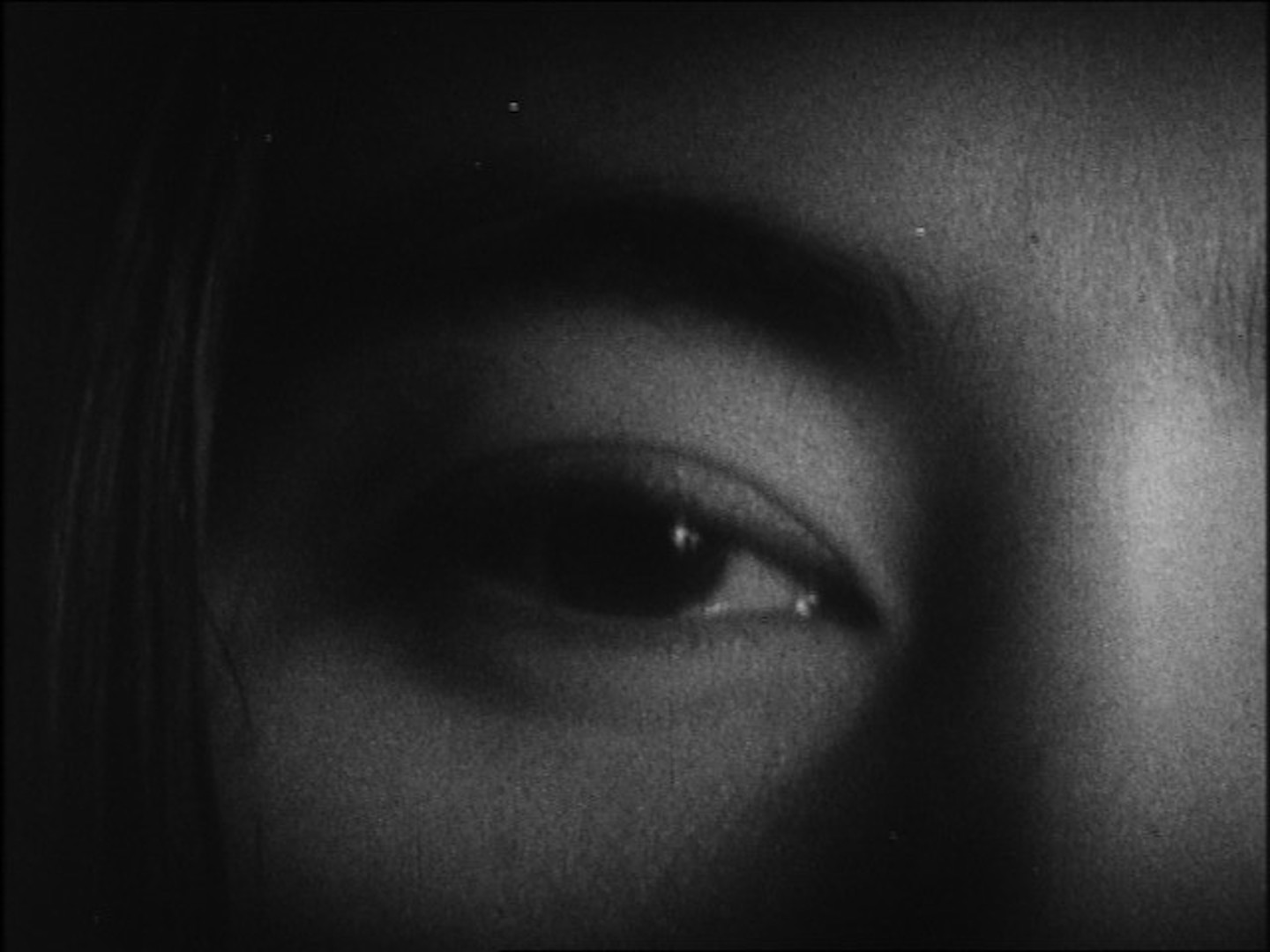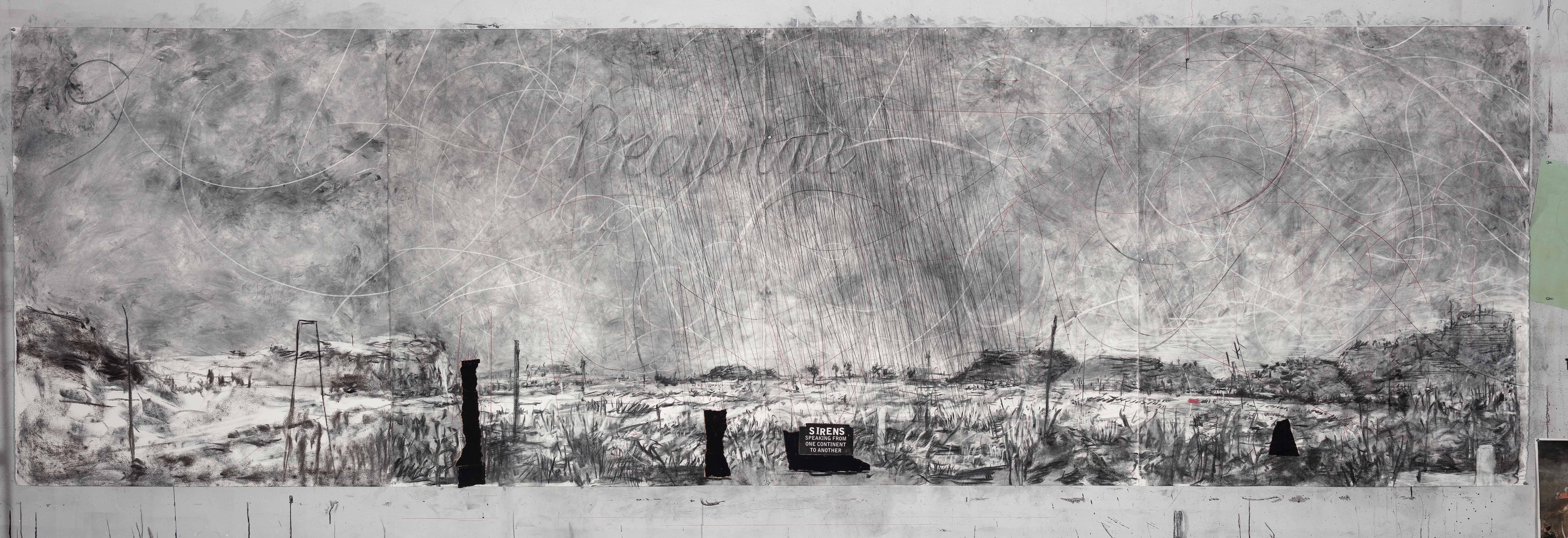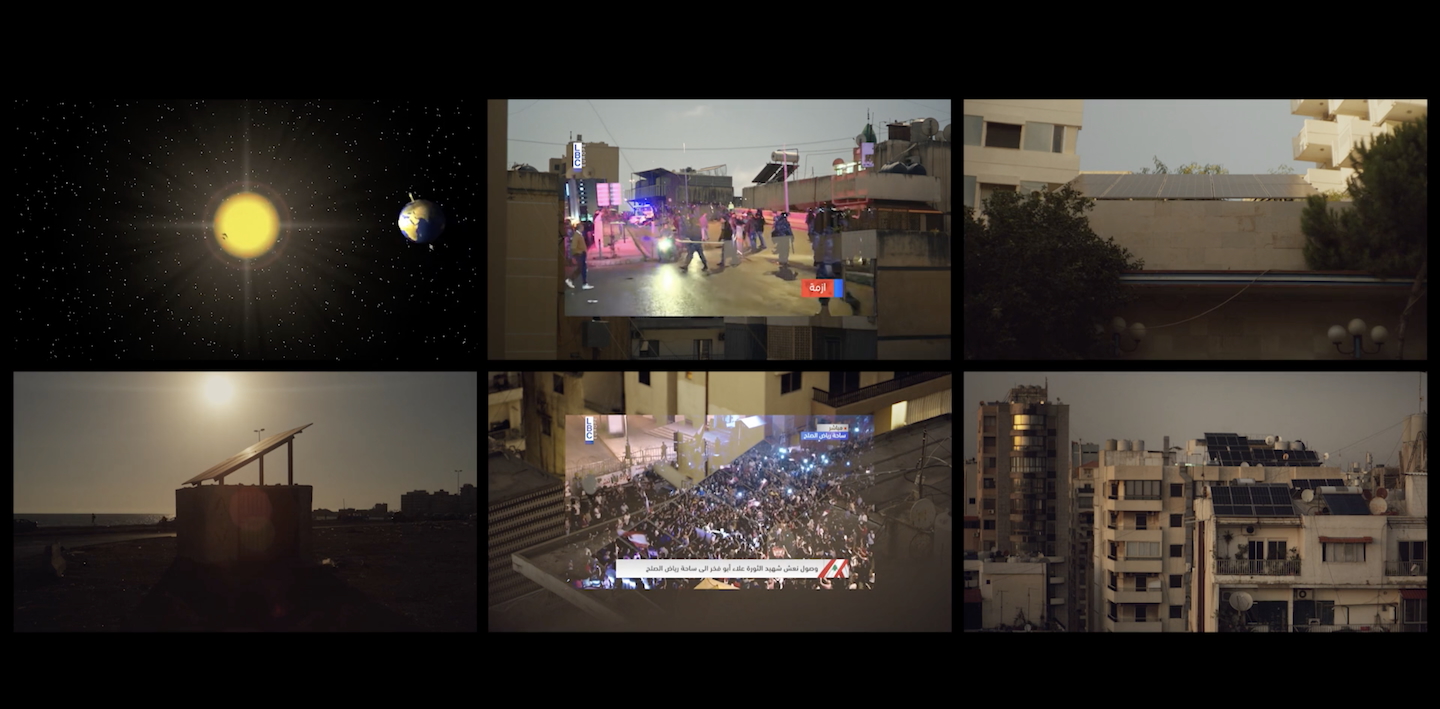Films by Parastoo Anoushahpour, Sharlene Bamboat, and Miryam Charles. Curated by Devika Girish, Lakshmi Padmanabhan, and Pooja Rangan.
Admisison starts at $5
June 3, 2023, 4pm
Brooklyn 11205
USA
To be once removed is to be both intimate and distant, absent and present. As a phrase connoting a generational and often diasporic difference, it is haunted by an elision—an excavation—across which relations persist. Join us at e-flux Screening Room on Saturday, June 3 at 4pm for Once Removed, a program of three works of accented documentary that explore how geographic, historic, and familial chasms are bridged by acts of translation.
Curated by Devika Girish, Lakshmi Padmanabhan, and Pooja Rangan, the program includes Miryam Charles’s Song for the New World (2021, 9 minutes), Parastoo Anoushahpour’s The Time That Separates Us (2022, 35 minutes), and Sharlene Bamboat’s If from Every Tongue it Drips (2021, 68 minutes). The screening will be followed by an extended conversation with the filmmakers and the event’s curators.
Charles’s Song for the New World crafts an intimate archive of colonial exile, weaving narratives of loss and longing for Haiti—a home the Canadian filmmaker never quite had—through the rich sonic inheritance of Haitian kreyòl. The film is part of an ongoing practice developed by Charles that melds myths, memories, children’s songs, and family stories into poignant reflections on the colonial origins of contemporary Black diasporic life.
In The Time That Separates Us, Anoushahpour creatively reinterprets the Sodom and Gomorrah myth of Lot to give form to the fraught negotiations of state borders and national belonging in the heavily militarized Jordan River Valley. Produced through a collective practice, the film reflects the director’s ethical commitments to translation across multiple legal and linguistic registers.
Made under the conditions of social isolation imposed by the COVID-19 lockdown, If From Every Tongue it Drops is an experiment in collaboration across distance. The film is a kaleidoscopic portrait of Ponni, a queer historian, translator, and anti-caste activist in Batticaloa, Sri Lanka. Footage filmed by Ponni’s lover, Sarala, was assembled by Bamboat in Montreal and scored by Scottish composer Richy Carey in the Isle of Skye, resulting in a film that finds unending creative possibilities in plurality and unintelligibility. Bamboat collides sound, text, and image to conjure a world where the boundaries between times, spaces, nations, and languages are porous and constantly shifting.
All three films raise fraught questions about the necessity of speaking across difference, particularly in a world where violence requires no translation.
Films
Miryam Charles, Song for a New World (Canada, 2021, 9 minutes)
Years after the disappearance of her father in Scotland, a young woman recalls her childhood on a Caribbean Island.
Parastoo Anoushahpour, The Time that Separates Us (Jordan/Palestine/Canada, 2022, 35 minutes)
The Time that Separates Us circles an ancient salt-rock formation overlooking the Dead Sea, near Ghor Al-Safi, Jordan. In the process, this Pillar of Salt becomes a portal through which to face the Jordan River Valley, its heavily militarized border and complex infrastructures of tourism, as well as the stigmatized realms of desire, sexuality, and gender encoded within a highly mediated political landscape and its related sites of mythology.
Sharlene Bamboat, If From Every Tongue It Drips (Canada/Sri Lanka/United Kingdom, 2021, 68 minutes)
If from Every Tongue It Drips is a documentary film that explores questions of distance and proximity, identity and otherness, through scenes from the daily interactions between two queer women: a poet and a cameraperson. Created between three locations—Montreal, Batticaloa, and the Isle of Skye—and connected through three languages—Urdu, Tamil, English—as well as through personal and national histories, music and dance, and the gaze of the camera lens, the film explores subjects both expansively cosmic and intimately close, from quantum superposition to the links between British colonialism and Indian nationalism.
For more information, contact program@e-flux.com.
Accessibility
–Two flights of stairs lead up to the building’s front entrance at 172 Classon Avenue.
–For elevator access, please RSVP to program@e-flux.com. The building has a freight elevator which leads into the e-flux office space. Entrance to the elevator is nearest to 180 Classon Ave (a garage door). We have a ramp for the steps within the space.
–e-flux has an ADA-compliant bathroom. There are no steps between the Screening Room and this bathroom.



















